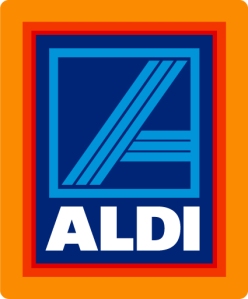I’ve been sitting here for a while now, trying to come up with a topic for this blog, with only one thing on my mind. “When can I stop thinking and have some lunch?” Now I’ve got some choices, either head up the hill to Morrisons, which provides lots of choice at a competitive price. Maybe head over to Poundland for a cheap sandwich of dubious quality. However there is a much better choice lurking in Bangor, a supermarket which has been voted Britain’s BEST supermarket…which may be a surprise to some of you, to be a German supermarket chain by the name of…
(Touch me)
Who as of June 2012, own 2.8% of the UK market share, (TNS global, 2012), and is the 9th largest grocery chain in Europe.
As a student, cost is everything. This not only includes price, offers and discounts, but also the time and effort it takes to go shopping. Students have a reputation for being lazy after all…
With the help of consumer psychology and behavioural economics, supermarkets have perfected the art of ‘aiding’ consumers with their purchases. It’s the inevitable scenario; all you need is milk.
You head into your local shop.
Twenty minutes later, you’re leaving with a carrier bag filled with a haddock, some Red Leicester cheese, a bag of pork scratchings, a trashy magazine, and a pack of gum.
Now after a while, this becomes rather frustrating. You’re being sucked in by the evil empires (cue the music), and part of you knows it. You’ve spent more money, time and effort shopping than previously planned.
Aldi has a different approach. In the most stereotypically German way, they are beyond efficient. Aldi want you in their supermarket, spending your money, and out again, as quickly as possible. This means more customers going through their tills, bringing in more profit for the company.
Some of the ways in which they do this include:
- They only have approximately five staff working in their shops at any one time.
- Their cashiers are the Olympic scanners of the supermarket world (heaven forbid if you can’t sweep your newly bought possessions into the trolley fast enough).
- They even position bar codes on their products which make them quicker to scan.
- The layout of their buildings don’t involve pesky aisles. Instead you have below eye-level aisles in the centre, with refrigerated items stacked around the edges, to make it easy to spot your milk from half way across the store.
- No outside brands, means no outside vouchers. So no fussing at the till.
- HUGE conveyor-belts on their tills to maximise the amount of people per checkout.
The supermarket may look uninteresting, but it’s deliberate. Aldi = efficiency, and believe it or not, it actually helps the consumer to.
In most cases, Aldi offers you just ONE choice. Where in most supermarkets you have to make a choice between 10 different types of baked beans, in Aldi you have just ONE brand to choose from…their own, which also look borderline identical to the brand leaders of that specific product. Some might say this choice is limiting, but it actually makes your shopping experience comparably stress free and speedy. This therefore decreases the cost to the individual, compared to the average consumer decision making process, perhaps making them more likely to return again. The use of own brands also allows the company to increase their own profit margins (Ailawadi, 2001). (Here’s a great link about choice overload)
However, much research has found (Cunnigham et al, 1982 and Hawes et al, 1982) that people generally prefer national brands over in-store brands, as overall quality is can be viewed as less than national brands.
To address peoples qualms with the one brand system, Aldi recently released the (quite British) comparative advertising campaign “Like Brands, Only Cheaper”, whereby ‘average consumers’ compare Aldi products with other known brands. The price of each item is then displayed, thus implying that Aldi is providing essentially the same product, but cheaper. They also included some humour, families, and small children to elicit some emotional engagement with the audience to make them that more appealing. Here’s some examples:
On the Aldi UK website, they even suggest that in blind-tests, the British public like Aldi brands “as much” as normal brands. Suggesting that quality isn’t sacrificed with their low prices.
Aldi have targeted the consumer from a completely different angle to their competitors, and it’s paying off. Providing comparably stress free, speedy, low-cost shopping in their uniquely German way, they’re now Blighty’s (and apparently Jesus’s) favourite supermarket.
For the record, I don’t work for Aldi.
